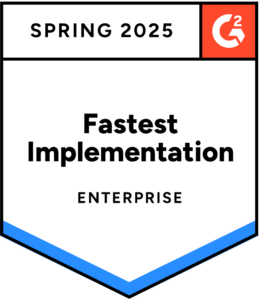Publisher’s Dinner: The Impact and Implementation of Artificial Intelligence
Blog post
Share
This blog originally appeared on The Dallas Business Journal. It is republished with permission.
On May 29, a group of Dallas-area business leaders sat down for dinner at Truluck’s in Plano. But this wasn’t just a great meal: It was a discussion about the impact and implementation of AI technology in a wide range of industries. The conversation touched on various aspects of artificial intelligence adoption, including challenges, opportunities, and considerations for the future.
The discussion was moderated by Ollie Chandhok, publisher and market president of the Dallas Business Journal. It included Omar Choucair (CFO of Trintech), Matt Scurlock (Managing Director and CFO at Texas Capital), Sherif Mityas (CEO of BRIX Holdings), Miguel Molina (CFO of Avocados from Mexico), and Tom Walker (CFO of the Dallas Cowboys).
How is AI currently impacting your operations?
Walker: Our use of AI looks different on the sports side compared to the business side. On the football side it is still evolving, not only with us, but across the NFL. We’re working our way through it in relation to human performance factors and believe there are key learnings and benefits that will be generated. On the business side, it’s all about connecting the dots. Who do I have on the sponsor side that’s also a ticketholder; that’s also a suite holder? We have that data. Our task is to connect the data and use AI to automate operations and the fan experience.
Scurlock: As a highly regulated company that has a responsibility to manage customer data safely and securely, we’ve invested in building a highly scalable and secure infrastructure and platform that we think will be a key differentiator as we apply AI.
Right now, we’re primarily using AI in the form of LLMs. But we also have our own integrated services layer that we drive LLMs through that connects to our workflows via APIs. This is driving significant tech-related efficiencies. Our early indications show a 20-40% increase in productivity on the data engineering side.
We’re focusing now on deploying LLMs to improve the customer experience. There are use cases for driving down costs, but what we’re interested in is deploying LLMs to make our clients’ lives better.
Molina: Operations are going to be a challenge for established companies because they’re competing against new companies that are founded with AI as the core business model. The gap between businesses born from AI versus those playing catch-up is significant.
We don’t have to go from zero to 100, but we need to allocate budget for experimentation, because that’s where the future is. That spending may even produce a new business model. The challenge is that there are so many different ecosystems right now. Do we build? Do we buy? The industry is moving so fast that no matter what you do, whatever you buy is likely going to be obsolete within a short time.
Three years ago, I started experimenting with hyper-automation. AI was beginning to be the talk of the town, but none of the vendors were truly ready. I decided to start with Microsoft because of the low cost and because their tools were relatively advanced. But now SAP matches up.
Today, all companies are facing this challenge: What ecosystem do I choose? Whatever you choose, it’s all about the data. It needs to be open enough to bring different models in, knowing that whatever you decide to do today, in a year, things might look very different.
Mityas: For us, it’s not about getting an AI server to drop off food for guests. It’s about making our people better at crafting memorable guest experiences.
Like all of you, we swim in data. You can get lost in all the data. But it’s not about the data, but instead the insights and decision-making that AI can deliver from that data to drive the guest experience. Our first step into this new technology focused on what can AI do to create better and more timely decisions? What should a GM be ordering for their restaurant, knowing that the weather will be above 90 degrees next week, that our promotions or our competitor promotions are slated to launch, and that this big local event is going on in the community? AI brings together all the data points that tell you whether a location should, say, be buying more ice cream or more burgers this week than the week before, or staffing more from 3-6 p.m. because schools are letting out early. AI helps managers make these kinds of decisions timelier and more accurately leading to an ultimately better guest experience.
Another benefit is personalization. Marketers can target people based on where they are, what they like to order, when they order, etc. No longer are people getting the one-size-fits-all email or text message blast. Now, I can send targeted messages because I know Tom likes to order wings at 5:30 p.m. on a Sunday before the Dallas Cowboys game.
We’re also experimenting with AI in the restaurant. Imagine when you walk in, and I know who you are. I know your favorite drink. I know your birthday. I know your name. So, I welcome you by name and say, “I’m sorry we missed your birthday last week, Mr. Chandhok, How about an old-fashioned? We’ll have it ready at your favorite table.” Imagine the stickiness, the loyalty you’ve just created with that guest. I haven’t replaced the host or the server. I’ve just made them better.
Choucair: I’ve been doing this for a long time, and I’ve never seen a situation like this where CFOs are greenlighting every purchase order. It’s permanently shifted the technology marketplace. Our business sells software to the offices of the CFO. Those CFOs always want to know, what’s the ROI? I’ve never seen a new technology like AI, where seemingly everything is greenlit. CFOs know that if they don’t greenlight it, they’re going to fall behind.
Where are the opportunities in your industry for AI to have the biggest impact?
Choucair: The first thing that comes to mind is upskilling employees. Many employees don’t know how to prompt AI. Like most companies, we have superusers, but then some people have no idea what LLMs are. You have to spend money and train them.
The second thing is leaning on your vendors. Your software vendors are investing heavily in AI, so leverage those features.
The third thing is knowing the use case. AI is massive. We’ve never seen anything like this before. It can be hard to distill it down on a piece of paper and say, “This is what it’s going to do for you.” So, we spend a lot of time answering that question internally before we go to folks like Matt and Tom and say, “This is how it’s going to benefit you.”
Scurlock: As a business, you want to compete and differentiate yourself based on your client experience. In our view, things like efficiencies and scale, and improved risk are just going to happen. Those probably won’t be the source of your competitive advantage. It’s going to be, how do you equip your people with more insights that drive improved client experiences?
We have multi-year strategic roadmaps that define where we want to be in one, three, and five years. These are where we describe the set of capabilities we want to build in the longer term. Our job then becomes identifying the technology to enable it.
Mityas: In our board meetings, we talk a lot about the output from AI. When you’re making decisions as an executive leadership team, you want the best idea, regardless of where it ultimately came from. So, we discuss the strategies that AI suggests. It’s become a valuable part of our discussions because people are coming to the table with better insights and better strategic decision-making capability. You don’t even have to mention the words “AI.”
What challenges have you experienced with the adoption or implementation of AI?
Choucair: We’re working on engaging employees and getting them trained. About a third of the people seem really into it. Another third of the people say, “I don’t know how to use it, but I probably need to learn.” The final third of the people say, “I can’t get there.” We’ve consulted with third-party firms and vendors like OpenAI, who have deeper experience with this to help teach and engage our employees.
Another area of focus for us is compliance. We have thousands of global clients, and their data can’t get mixed with other clients’ data. We’ve built our LLMs such that there are individual LLMs for each client. But to use them, employees must be properly licensed. You can’t have rogue employees downloading stuff to their phones. Any LLM usage must be with a licensed app. Licensed apps come with a toggle: share data for model training or don’t share.
I’ve learned a lot over the last three months because we recently negotiated an OpenAI license agreement. We had to train people. We had to update our privacy policy. Now we have an AI policy, which we didn’t before. Between the Chief Legal Officer, the Chief Technology Officer, the Chief Information Security Officer, etc., it’s a massive undertaking.
Molina: Creating an AI policy is on our roadmap. We started very aggressively, but I pulled back the reins because we didn’t have the right data controls yet.
Walker: We need to be prepared to move quickly. For example, when we committed to going cashless, some people said our fans would never accept it. Then, with COVID, we went cashless over just 20 days. We had maybe five people say something during that first season, because people just adapt. Often, we assume they won’t adapt. We’re afraid to adapt for them. But they adapt, no problem.
Molina: We as leaders probably have biases against technology and AI. But the customers are already using Claude, they’re already using GPT. They’re not telling us about it, but they’re already using it. That said, they’re also not charged with resource allocation or protecting the reputation of the firm.
What are the most important things to consider regarding AI in your industry over the next year?
Scurlock: We’re focused on implementing AI safely and securely. You might feel like you’re moving slowly but ensuring that you’re provisioning the right access and that you’re protecting your data, one of the most important assets your company has, should be a focus.
Mityas: From an implementation perspective, it has to be about making your people better, not replacing your people. We’re in the hospitality business. For us, it’s not just about saving a penny, it’s about curating the experience. When your people in the field are utilizing technology to make better, faster decisions that improve the guest experience, then good things happen. The money will come.
Willingness to engage with AI has to be part of the recruiting process going forward. It can’t just be that you’re smart and you’re motivated and you’re energetic. You have to be open to utilizing this technology as part of who you are and what you do. Those people who are willing to rely on the technology and use it to their advantage are the people who are going to win.
Walker: The final piece of all this is having the right partners. Texas Capital is really good at some things, but it’s not, by nature, a software business. It’s not what they do. It’s not what BRIX does. It’s not what Avocados from Mexico does. It’s not what the Cowboys do. We aim to have the right partners that can tell us, “These are the things that make you stronger with your customers, your vendors, and your data.” So, for me, it’s about having an open mind to hearing about all the benefits and the use cases. We know we don’t want to invest the dollars to do it all on our own. So, let’s find the right partner to get us there.
Also, as we’ve all said, it’s about people. The technology will give you more and better data. But ultimately, data by itself is just data. It’s the people that take the data and harness it that make a difference.
Choucair: Most financial institutions still operate in an on-prem environment, meaning that they’re running all their systems inside their own data centers. The problem is, if you’re running your own data center, you don’t get the benefits of IT scale. You’re not creating AI on your own. To take advantage of AI, you have to offload your data to a software company that can give you those benefits.
There’s a massive shift underway. We just recently had a large bank move their systems to the cloud, and it was a huge event for us. They’ve entrusted a lot of their work to our business and they’re getting rid of their legacy systems, because it’s not only more efficient, but they have more control. And they get all the benefits of AI.
Meet the panelists
Omar Choucair, chief financial officer, Trintech. Omar Choucair has over 25 years of experience leading financial and administrative organizations for public and private software and professional services companies. Prior to becoming CFO of Trintech, Choucair managed several companies that experienced significant revenue and cash-flow growth through organic and acquired enterprises. He has completed numerous M&A transactions, exit events, transformational system implementations, and managed public and private equity/debt financings. Trintech began his career as a CPA at KPMG, where he managed large publicly traded multi-national services and technology company audits for a period of 10 years.
Matt Scurlock, managing director and chief financial officer, Texas Capital. Matt Scurlock serves as managing director and chief financial officer of Texas Capital and its parent company, Texas Capital Bancshares, Inc. (NASDAQ: TCBI), where he is responsible for all accounting and financial reporting functions, as well as financial planning and analysis, capital planning and funds management. He oversees the firm’s finance, accounting, investor relations, and strategic sourcing departments, and serves on the board of directors for the Texas Capital Community Development Corporation (TCCDC), a wholly owned subsidiary of the bank whose purpose is to lend and invest in economic development for underserved communities. Before joining Texas Capital, Scurlock worked for Deloitte & Touche LLP, where he provided strategic consulting to financial services clients.
Sherif Mityas, chief executive officer, BRIX Holdings. As chief executive officer of BRIX Holdings, Sherif Mityas leads the BRIX and Amici Partners Group family of dining brands, a group which includes Friendly’s, Clean Juice, Red Mango, Orange Leaf, Smoothie Factory, Souper Salad, and Humble Donuts. Mityas is a veteran retail and restaurant industry executive, most notably serving as the Chief Experience Officer for TGI Fridays and as Chief Executive Officer for Hollywood Video/Movie Gallery. In 2020, he was named one of the top 10 innovators in the restaurant industry by Nation’s Restaurant News in their annual Power List rankings.
Miguel Molina, chief financial officer, Avocados from Mexico. A passionate, bilingual financial executive with demonstrated leadership ability, Miguel Molina is the chief financial officer of Avocados From Mexico, a joint venture between the Mexican Hass Avocado Importers Association and the Association of Avocado Exporting Producers and Packers of Mexico that markets Mexican avocados to consumers in the United States, while building a brand and promoting avocado consumption in the U.S. He brings to the role his unique perspectives on marketing, consumer package goods, and business systems process optimization, as well as a strong record of high performance as a hands-on, engaged financial leader.
Tom Walker, chief financial officer, Dallas Cowboys. After graduating from Oklahoma State with a bachelor’s degree in finance and a master’s degree in accounting (tax emphasis), Tom went to work full time in KPMG’s Dallas office. Shortly after moving to the Dallas office, he transitioned into KPMG’s high net worth individual practice. For the next four+ years, Tom focused exclusively on financial planning for corporate executives and income and transfer tax for high-net-worth individuals. From 2001-2003, Tom worked in KPMG’s international tax and legal center in Amsterdam. During this time, his focus was on building a global network of practitioners to service KPMG’s high-net-worth clients and on assisting the global risk group in conducting due diligence reviews on KPMG’s offices worldwide.






